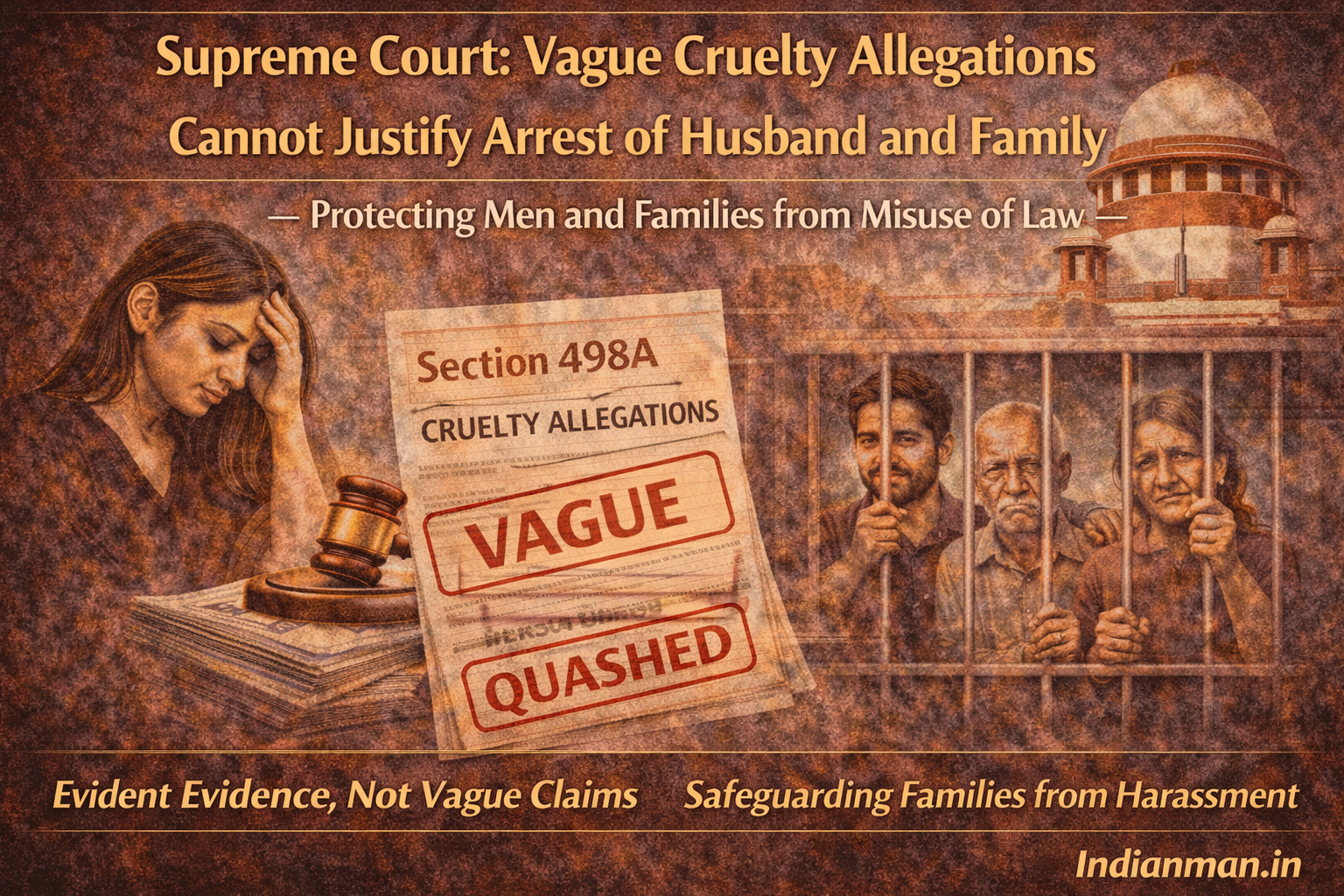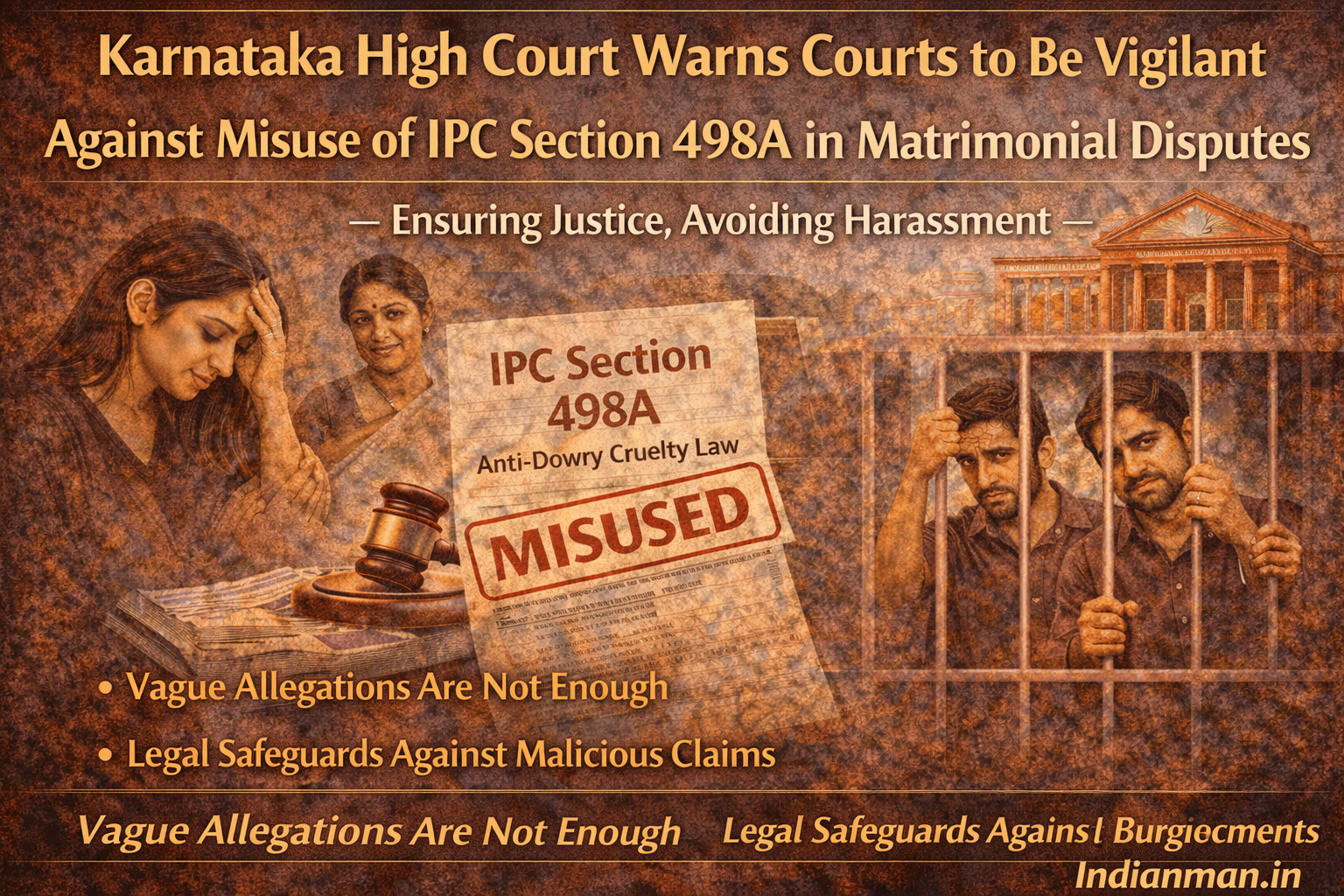Supreme Court Acquits Man After 26 Years, Warns About Misuse of Section 498A
In a major ruling, the Supreme Court of India has acquitted a man in a 26-year-old case related to dowry harassment and cruelty. The Court expressed serious concern over the misuse of Section 498A of the Indian Penal Code (IPC) and the Dowry Prohibition Act, 1961, especially in matrimonial disputes.
The case was between Rajesh Chaddha and the State of Uttar Pradesh. A bench of Justices BV Nagarathna and Satish Chandra Sharma set aside the man’s earlier conviction, saying that the accusations were vague and lacked specific details.
Misuse of Cruelty Laws
The Court pointed out that the word “cruelty” is often misused in these cases. It said that vague or emotional claims without specific examples, dates, or proof cannot lead to punishment.
“The term ‘cruelty’ is often misused and needs strong, detailed evidence to be proved,” the Court noted.
The judges also warned against the increasing trend of wives naming multiple family members—like elderly parents or relatives who live separately—in such complaints without any clear role or act of wrongdoing.
The Background of the Case
The case started in 1999, when the man’s wife filed a complaint accusing him of mental and physical abuse, dowry harassment, and even causing a miscarriage through physical assault.
The trial court convicted him under Section 498A IPC and Section 4 of the Dowry Prohibition Act, sentencing him to three years in jail. This decision was confirmed by the Allahabad High Court in 2018. The accused then appealed to the Supreme Court.
Lack of Solid Proof
On May 13, 2025, the Supreme Court acquitted the man. It said the wife’s accusations were not backed by evidence. For example, she did not provide medical proof of a miscarriage or detailed accounts of physical abuse.
The Court emphasized that criminal law requires proof beyond reasonable doubt. Emotional claims or vague statements are not enough to send someone to jail.
Warning Against Misuse of Laws
The Court referred to its past ruling in Dara Lakshmi Narayana v. State of Telangana, where it had already warned against sweeping charges against extended families.
It also noted that the couple lived together for only 12 days after their marriage in 1997. The FIR was filed after the husband filed for divorce, raising more doubts about the real motive behind the complaint.
Final Verdict
The Court found that the evidence provided was not enough to convict the man, and therefore cleared him of all charges. It once again stressed the need for specific, clear, and strong evidence in such sensitive cases.
Be a part our social media community:
Facebook: https://www.facebook.com/IndianMan.in?mibextid=ZbWKwL
Instagram:
https://www.instagram.com/indianman.in?igsh=MWZ2N3N0ZmpwM3l3cw==



